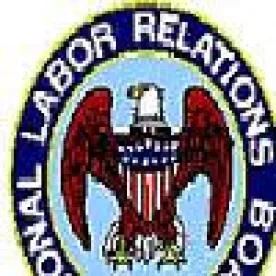June 21, 2011, the NLRB proposed a significant overhaul to its existing rules governing union representation elections. If implemented, the rules would impact employers by giving them less time to campaign and by giving unions significantly more information about employees, including personal telephone numbers and e-mail addresses. The changes also would limit challenges and postpone the resolution of disputes regarding who can vote. All of these changes will impact how employers run campaigns and how unions organize employees. The NLRB will expedite consideration of the new rules and accept comments only for the next 60 days. The NLRB is expected to issue final rules later this year.
Dissenting from today’s announced rulemaking, NLRB Member Hayes, a Republican, described the proposal as an attempt “by administrative fiat” to “impose organized labor’s much sought-after ‘quickie election’ option, a procedure under which elections will be held in 10 to 21 days from the filing of the petition.” He also criticized the changes to hearing procedures as focused on preventing parties, “primarily employers, from litigating issues in representation proceedings, even when legitimate issues are raised and a full record and Board review would seem to be essential.”
Some of the more significant proposed changes include:
Employers Must Provide the NLRB and Unions More Information about Voters:
- Employers will now give petitioning unions information about an employee’s phone numbers, e-mail addresses, job classification, work location and shift. This is in addition to existing requirements that the union receive employee home addresses. The NLRB would use e-mail addresses to send voters information about the election directly. Providing the union more information about employees will tend to give unions better access to employees. In conjunction with shifting NLRB decisions with respect to union access to employer-owned cell phones and e-mail addresses, this change may give unions greater access to employees on the job too. In anticipation of final rules, employers should make certain that their cell phone, e-mail and electronic communications policies are up to date.
Employers Will Have to Identify Issues Before Hearings or Risk Waiving Them:
- Pre-election hearings will now be held within 7 days of the petition in most cases and post-election hearings 14 days after the tally of ballots issues at the close of voting. No later than the start of any hearing, an employer will have to identify all issues it intends to raise and make an offer of proof regarding the supporting testimony it would present. Employers would be barred from raising issues not covered by its prehearing statement. After a hearing, an employer will not have an automatic right to a brief and, in many cases, would not even have a right to NLRB review. This will make it critical to investigate issues and research arguments as soon as a petition is received and to continue investigating throughout the election process.
Employers Will No Longer Be Entitled to a Hearing to Determine Who Votes:
- Under current rules, the parties have a right to a pre-election determination regarding significant issues regarding the voting unit. If the NLRB’s proposals are adopted, employers could not litigate these issues before the vote unless they involve 20 percent or more of the voting unit. Voters would instead be challenged at the polls and the issues litigated after the fact. In practice, employees will not be certain if their votes will count. That can discourage turnout, particularly among pro-company voters. Moreover, there is a risk of abuse. A union can have the best of both worlds—excluding voters after the fact where their votes would prevent unionization and including them over their objection where their votes are not outcome-determinative. A union could even speak with challenged voters and ask how they voted so as to determine what issues to litigate. Unlike unions, employers cannot question employees in this fashion. All of these changes shift the balance in the rules in favor of a petitioning union.
Shortened Times for Pre-election and Post-election Hearings:
-
Hearings would be set 7 days after a petition is filed and 14 days after the tally of ballots is issued, with limited grounds for postponement. This will tend to speed up the resolution of issues—and shorten many election periods—at the expense of giving employers a less robust opportunity to be heard.
On their face, the proposed amendments do not shorten the Board’s internal practice of trying to schedule stipulated elections within 42-days from the petition filing. But by shortening the time targets at each step, the Board appears to be moving toward shortening the overall time between the filing of a petition and an election as well. Certainly Member Hayes reads the proposed changes this way. Keep in mind that the 42-day target is not codified in the existing rules. It is an informal rule that can be modified without further rulemaking after the underlying procedures are changed.
At bottom, the shifting election landscape will require employers to react faster to election petitions and do more to prepare for (and hopefully prevent) election petitions before they are filed.




 />i
/>i
